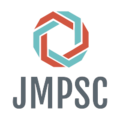Difference between revisions of "2021 JMPSC Accuracy Problems/Problem 14"
Mathdreams (talk | contribs) m (→Solution 2) |
|||
| (3 intermediate revisions by 3 users not shown) | |||
| Line 15: | Line 15: | ||
~Bradygho | ~Bradygho | ||
| − | == Solution 2 == | + | ==Solution 2== |
| − | By multiplying out <math>16 \cdot 25</math>, <math>161 \cdot 252</math>, and <math>1616 \cdot 2525</math>, we notice that the first <math>2</math> digits don't change even when we continue to add more digits. With this observation, we can conclude that the first digit of the product is <math>4</math>. | + | By multiplying out <math>16 \cdot 25</math>, <math>161 \cdot 252</math>, and <math>1616 \cdot 2525</math>, we notice that the first <math>2</math> digits don't change even when we continue to add more digits. With this observation, we can conclude that the first digit of the product is <math>\boxed{4}</math>. |
~Mathdreams | ~Mathdreams | ||
| + | |||
| + | ==Solution 3== | ||
| + | Remove factors of <math>16</math> and <math>25</math> to get <math>\left(\underbrace{101010101 \cdots}_{\text{50 0s and 50 1s}} \right)^2 \cdot 400</math>. Recall by Pascal's triangle that <math>11=121</math>, <math>101=10201</math>, so the leftmost digit is guaranteed to be <math>1</math>. Now, multiplying by our scale factor the answer is <math>\boxed{4}</math> | ||
| + | <math>\linebreak</math> | ||
| + | ~Geometry285 | ||
| + | |||
| + | |||
| + | |||
| + | ==See also== | ||
| + | #[[2021 JMPSC Accuracy Problems|Other 2021 JMPSC Accuracy Problems]] | ||
| + | #[[2021 JMPSC Accuracy Answer Key|2021 JMPSC Accuracy Answer Key]] | ||
| + | #[[JMPSC Problems and Solutions|All JMPSC Problems and Solutions]] | ||
| + | {{JMPSC Notice}} | ||
Latest revision as of 16:25, 11 July 2021
Problem
What is the leftmost digit of the product ![]()
Solution
We notice that
![]() In addition, we notice that
In addition, we notice that
![]()
Since
![]()
We conclude that the leftmost digit must be ![]() .
.
~Bradygho
Solution 2
By multiplying out ![]() ,
, ![]() , and
, and ![]() , we notice that the first
, we notice that the first ![]() digits don't change even when we continue to add more digits. With this observation, we can conclude that the first digit of the product is
digits don't change even when we continue to add more digits. With this observation, we can conclude that the first digit of the product is ![]() .
.
~Mathdreams
Solution 3
Remove factors of ![]() and
and ![]() to get
to get  . Recall by Pascal's triangle that
. Recall by Pascal's triangle that ![]() ,
, ![]() , so the leftmost digit is guaranteed to be
, so the leftmost digit is guaranteed to be ![]() . Now, multiplying by our scale factor the answer is
. Now, multiplying by our scale factor the answer is ![]()
![]() ~Geometry285
~Geometry285
See also
The problems on this page are copyrighted by the Junior Mathematicians' Problem Solving Competition. 









